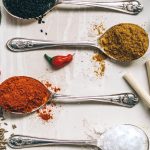Dealing with an Injury
You’ve probably heard of the RICE method to relieve pain, reduce swelling, and speed healing. The RICE method is great to follow right after you’ve suffered from a physical injury and it’s helpful to keep doing it within the first 48 hours.
What it exactly means is:
- Rest by reducing your regular activities.
- Apply ice to the injured area for 20 minutes, four to eight times a day.
- Put even pressure (compression) on the injured area and…
- Elevate the injured area above the heart to help reduce swelling.
RICE can help you control the pain and swelling caused by an injury, but your diet will need much more than simple rice for a fast and efficient recovery.
Stress, a lack of proper nutrition and forcing yourself into postures which put too much strain in your body can result in injury. Some of the most common injuries come from not warming up or not aligning your body properly, as well as supporting great amounts of weight, pulling or forcing your body into unorthopedic positions. If you ignore your injury and you keep pushing your body chances are that it will get worse and might even increase the damage and even affect other parts of your body like a domino effect.
What happens in an injury?
When you have a physical injury you will most likely get inflammation. The injured area becomes swollen to initiate a process of repair and renovation. In order to help your body reduce the inflammation and produce new cells and tissue you need something extra. Ginger, curry and turmeric, garlic, pineapple, cocoa, tea, blueberries are all great anti-inflammatories and are great additions to snacks and meals.
Another way to prevent an injury and increase your speed of recovery is through a diet with the right nutrients. Check out these two essential nutrients that should not go missing on your recovery diet.
1) Polyphenols
Polyphenols are molecules and active substances found in many medical plants. They are known for their antioxidant properties. They are also able to modulate many enzymes, which are in charge of disintegrating your food into more absorbable particles, and cell receptors, which are the paths in which nutrients and other particles are absorbed into the cells.
Polyphenols can be found in fruits, tea and wine. Some types of polyphenols can also be found in any plant product such as vegetables, cereals and pulses. Some polyphenols can only be found in specific types of foods. For instance flavones are found in citrics, isoflavones in soy and ploridzin in apples. However, most of the time, polyphenols are found in complex mixtures.
If you are suffering from an injury try to increase your intake of fruit and add green tea to your mid-afternoon snacks.
2) Antioxidants
Antioxidants have an important role in an injury because they will not only prevent damage from free radicals but also promote anti-inflammation which will prevent other diseases and help control the immune system.
See Also: Navigating an Injury: Don’t Let It Get between You and Your Mat
Vitamins and Minerals to Find and Avoid
Vitamins A, B, C, and D as well as calcium, copper, iron, magnesium, manganese, and zinc are all important for injury recovery. On the other hand, avoid consuming foods or supplements in vitamin E during an injury because it may slow down your healing.
For an acute injury these are the recommended levels of intake for some vitamins and minerals to decrease the recovery time:
- Vitamin A – 10,000 IU/day for 2-4 weeks post-injury
- Vitamin C – 1000-2000 mg/day for 2-4 weeks post-injury
- Copper – 2-4 mg/day for 2-4 weeks post-injury
- Zinc – 15-30 mg/day for 2-4 weeks post-injury
1) Vitamin A
Vitamin A enhances and supports early inflammation during injury, reverses post-injury immune suppression, and assists in collagen formation via collagenase modulation. Studies have shown that collagen cross-linkage is stronger with vitamin A supplementation and repair is quicker.
2) Vitamin C
Clinical studies have provided evidence that healing wounds can be significantly accelerated with vitamin C intake above the recommended daily allowance (RDA). In a research daily dosages of 500 to 3000 mg of vitamin C were administered (which is roughly 8 to 50 times the RDA of 60 mg) to subjects recovering from surgery, other injuries, decubital ulcers, and leg ulcers induced by hemolytic anemia. As a result, the study showed that patients who had a high intake of vitamin C had a faster recovery.
Get Your Amino Acids
Amino acids are the basic building blocks of our muscles. Research has shown that amino acid supplementation could increase the amount of other amino acids such as glutamate and cysteine which can help increase the amount of reduced glutathione.
Glutathione is an important antioxidant found in plants, animals, fungi, and some bacteria which has the ability to remove damaging reactive oxygen chemicals. Other than producing glutathione by the intake of amino acids you can also obtain it from consuming sulphur-rich foods which include garlic, onion, and cruciferous vegetables such as kale, collards, cabbage, cauliflower, watercress.
Combining all of these nutrients into a balanced diet will support your body into healing faster.
Get Well Soon(er)!
What you eat could not only prevent you from getting injured, but can also be a great support on your way to recovery. If you get an injury try to eat every three to four hours so that you have enough nutrients to help repair your body. Look for snacks and meals with at least one source of protein such as eggs, nuts, grains, pulses and dairy products. Other than making sure that you obtain the right amount of energy to manage the inflammation, also try obtaining enough micronutrients which may dramatically speed up the injury recovery process.













